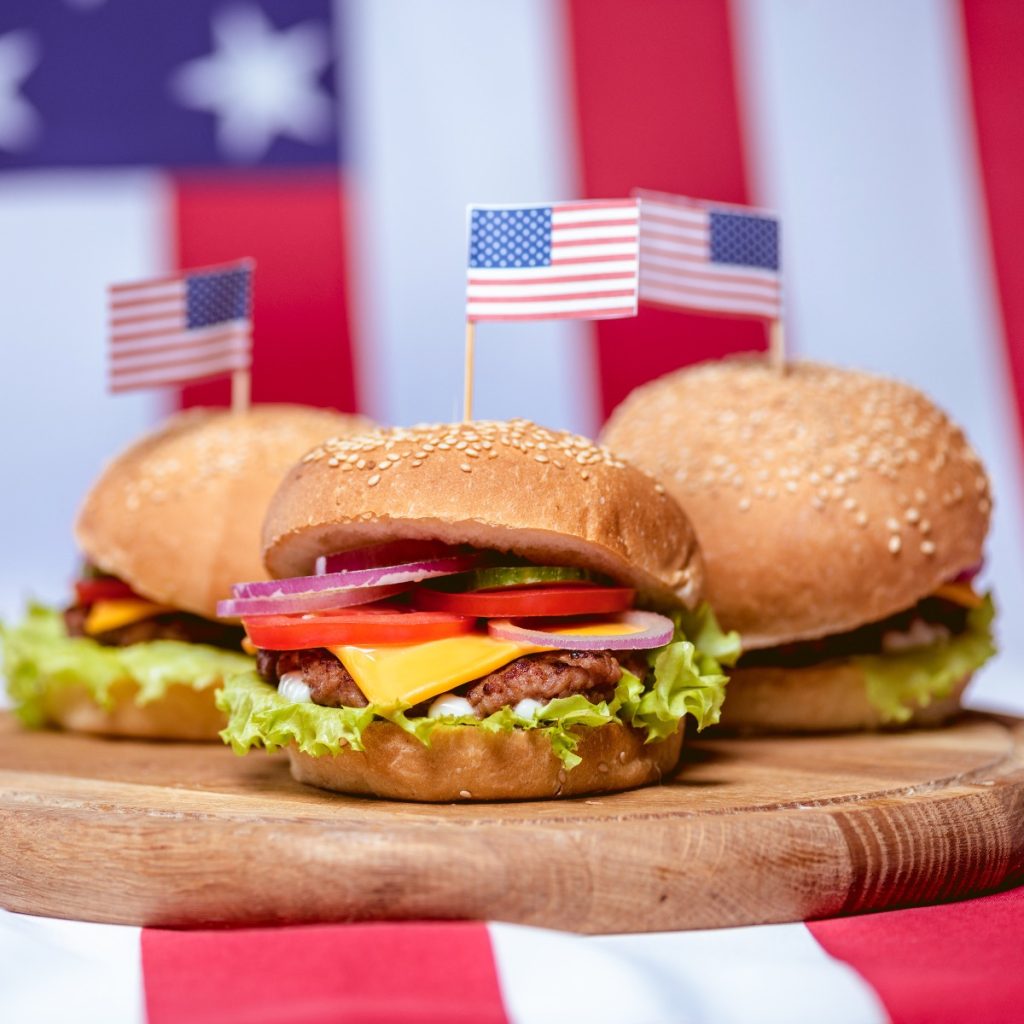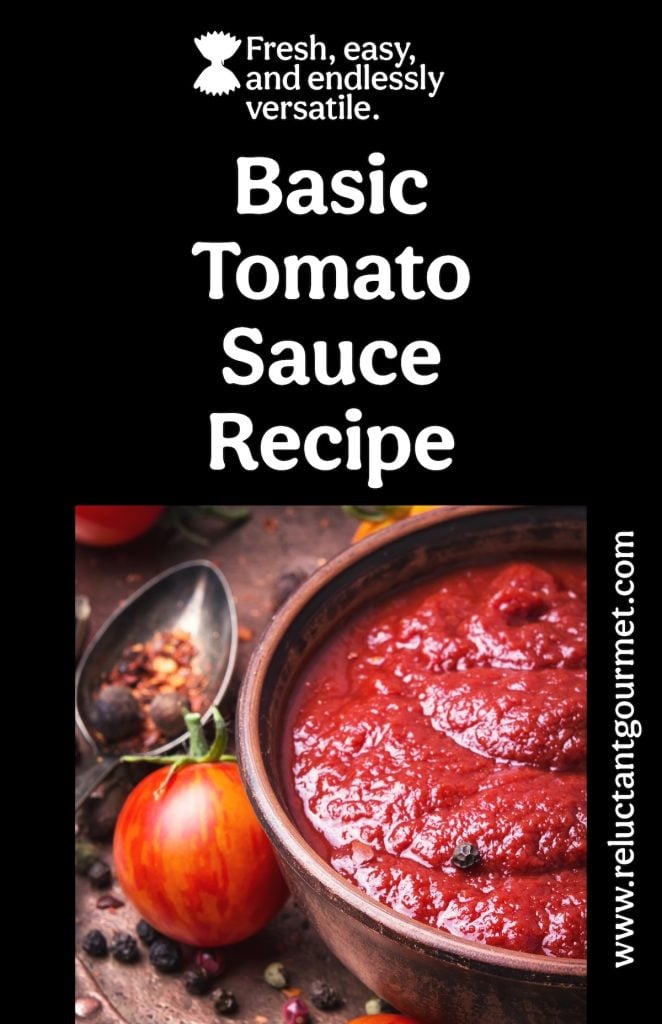Celebrating the 4th of July with Great Food
The 4th of July, also known as Independence Day, is a significant holiday in the United States commemorating the country’s declaration of independence from Great Britain in 1776. Beyond its historical and patriotic significance, the 4th of July has also become synonymous with culinary traditions that reflect America’s diversity and regional flavors. From barbecues and picnics to festive desserts, the culinary history of the 4th of July is rich and vibrant, offering a taste of American culture and heritage.
4th of July Barbecue
The barbecue is one of the most iconic culinary traditions associated with the 4th of July. Grilling and barbecuing have long been a part of American cuisine, with roots that trace back to indigenous cooking techniques and early colonial times.
In the nation’s early days, barbecues were often communal events where whole animals were slow-roasted over open fires. Today, the 4th of July barbecue is a beloved tradition where families and friends gather to cook an array of meats, such as hamburgers, hot dogs, ribs, and chicken, often accompanied by delicious side dishes like corn on the cob, cole slaw, and baked beans.
Picnics
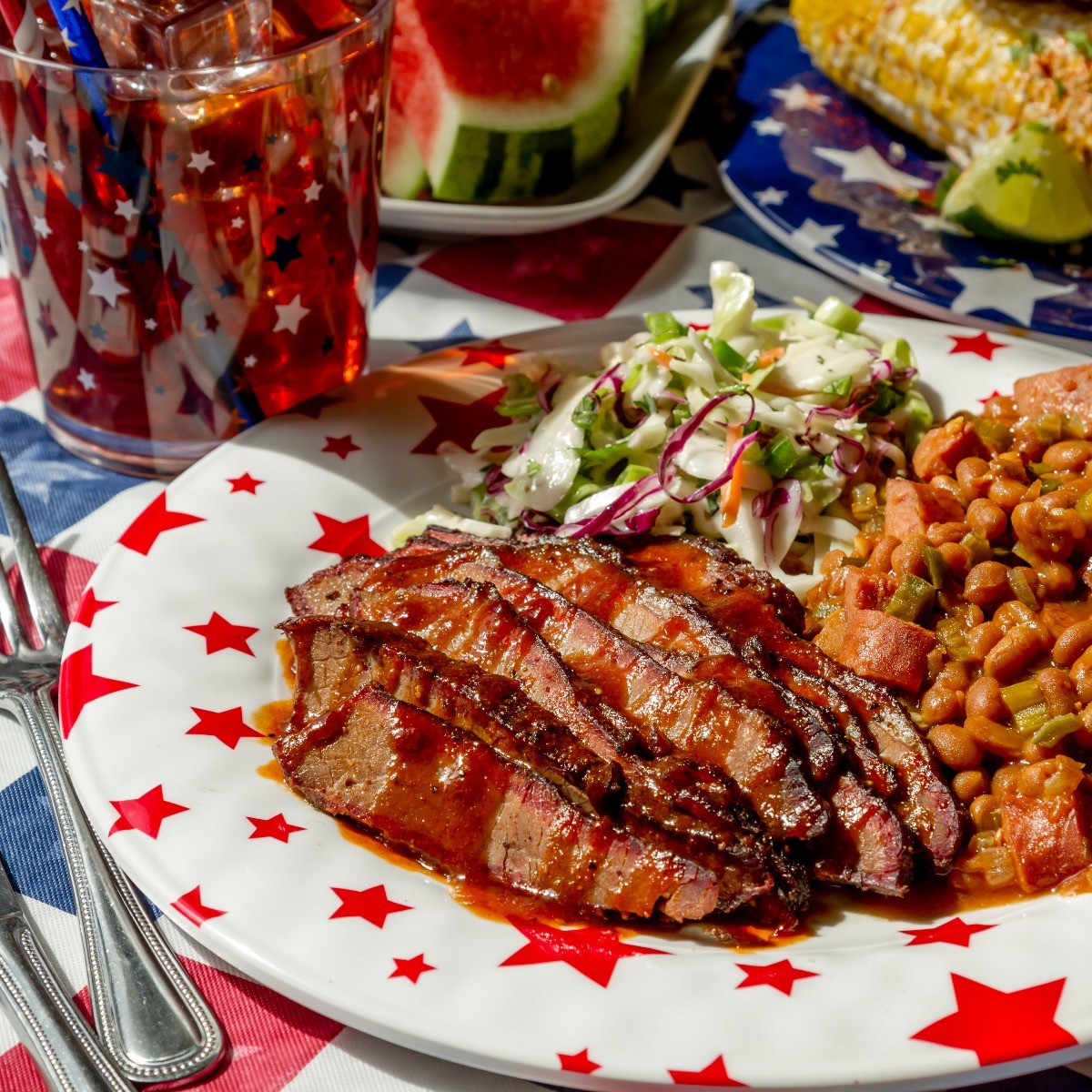
Another popular culinary element of the 4th of July is the picnic. The tradition of packing a meal and enjoying it outdoors during Independence Day celebrations dates back to the early 19th century. Families would gather in parks or open spaces, spreading blankets on the ground and sharing homemade dishes.
The picnic menu typically included sandwiches, fried chicken, potato salad, deviled eggs, and various types of fruit pies. Today, picnics remain a cherished tradition, and people often enjoy classics like fried chicken and watermelon and refreshing beverages like lemonade or iced tea.
Desserts
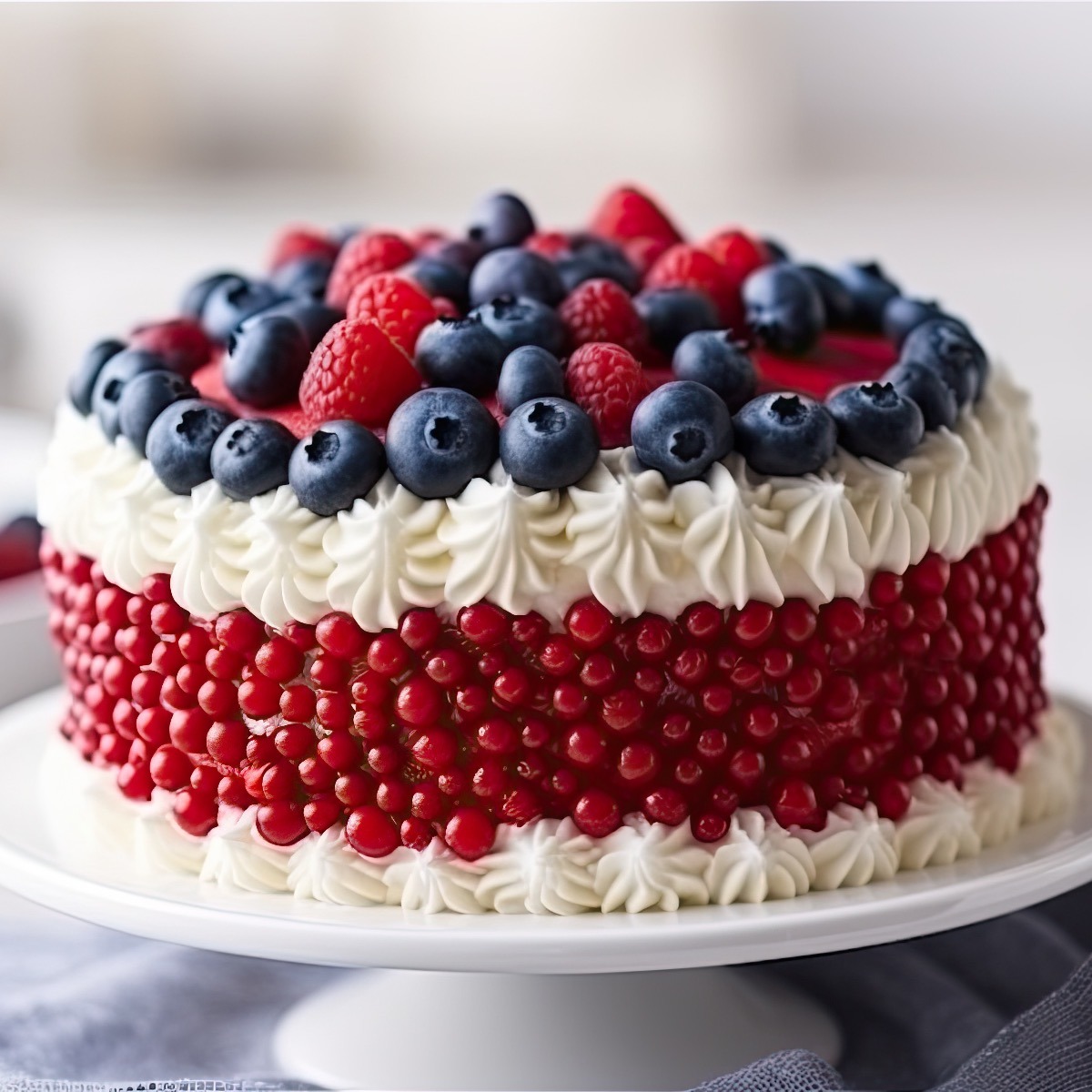
Regarding desserts, the 4th of July offers a chance to indulge in patriotic-themed treats. One of the most iconic desserts is the American flag cake. The cake is typically baked in a rectangular shape, frosted with white icing, and decorated with fresh strawberries for the red stripes and blueberries in the shape of the stars on the American flag.
The American flag cake symbolizes unity and pride in the country. Other popular desserts include apple pie, which has been associated with American culture since the colonial era, and red, white, and blue cupcakes or cookies that showcase the national colors.
Regions
Furthermore, the 4th of July culinary traditions vary across different regions of the United States, showcasing the diversity of American cuisine. In the Southern states, for example, the 4th of July often includes dishes like barbecued ribs, smoked brisket, and collard greens.
In the Northeast, seafood plays a prominent role, with clambakes and lobster boils being popular choices. Corn and apple dishes take center stage in the Midwest, highlighting the region’s agricultural heritage.
The West Coast embraces its bountiful produce with fresh salads, grilled vegetables, and artisanal cheeses. These regional variations add depth and flavor to the 4th of July culinary experience, reflecting the unique food traditions of each area.
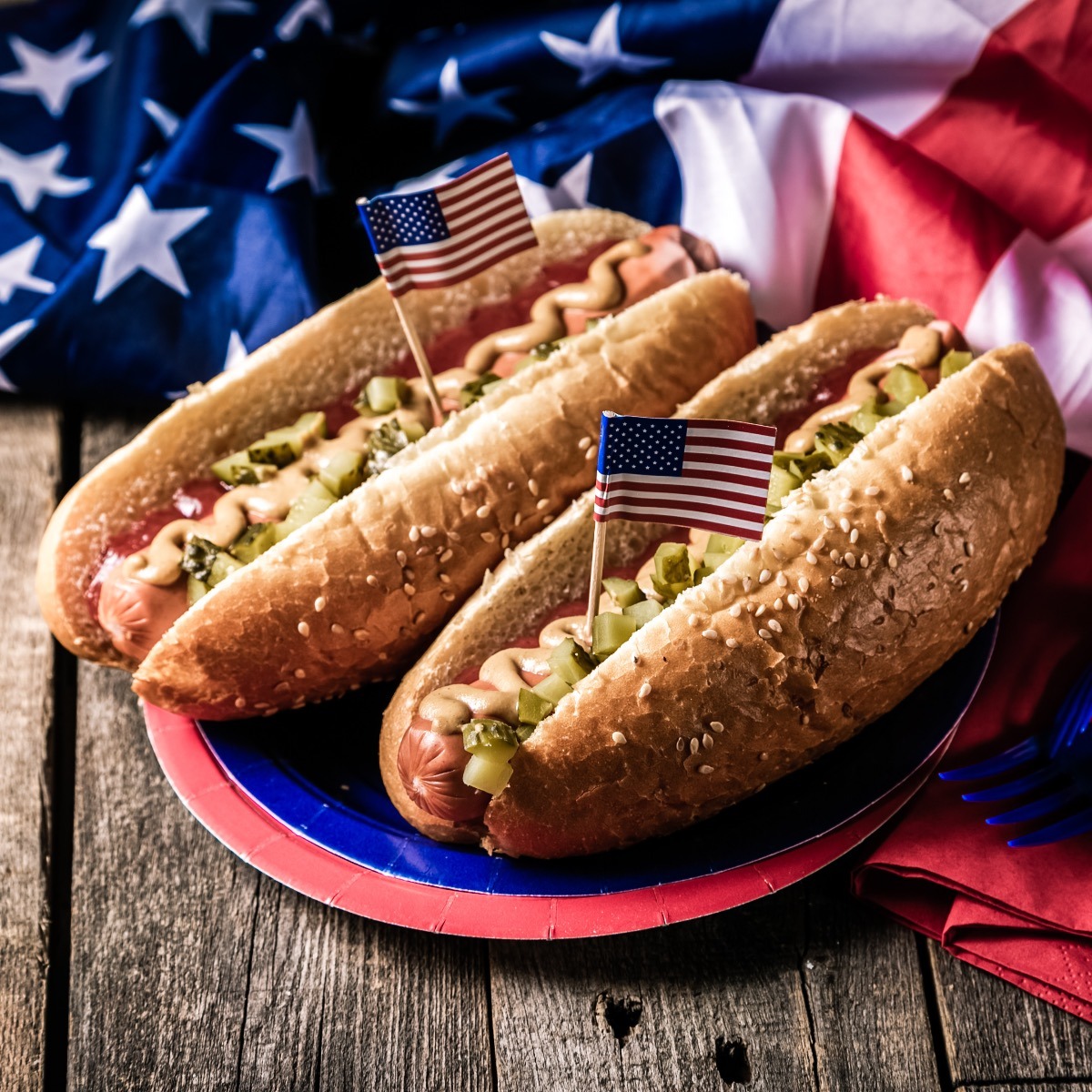
Healthier Options
In recent years, there has also been a growing emphasis on incorporating healthier options and dietary preferences into the 4th of July menus. Grilled vegetables, plant-based burgers, and gluten-free desserts are becoming more common, allowing individuals with different dietary needs to enjoy the holiday without compromising their choices.
American Food Culture
The culinary history of the 4th of July is a testament to the rich tapestry of American food culture. From traditional barbecues and picnics to patriotic desserts and regional specialties, the holiday offers a delightful array of flavors and dishes that reflect the nation’s diversity.
Whether it’s grilling burgers, savoring a slice of apple pie, or enjoying a picnic with loved ones, the 4th of July is a celebration of American culinary traditions. It is a time to gather with family and friends, share delicious food, and pay homage to the history and values of the nation.
As the 4th of July approaches each year, people across the United States begin planning their menus, scouring recipe books, and exchanging family favorites. The culinary traditions of this holiday not only nourish the body but also serve as a reminder of the shared values and freedoms that Americans hold dear.
While the 4th of July may be rooted in history, its culinary traditions continue to evolve and adapt to modern tastes and dietary preferences. People now explore healthier options, experiment with fusion flavors, and incorporate international influences into their celebrations. This dynamic nature of the culinary history of the 4th of July demonstrates the resilience and creativity of American cuisine.
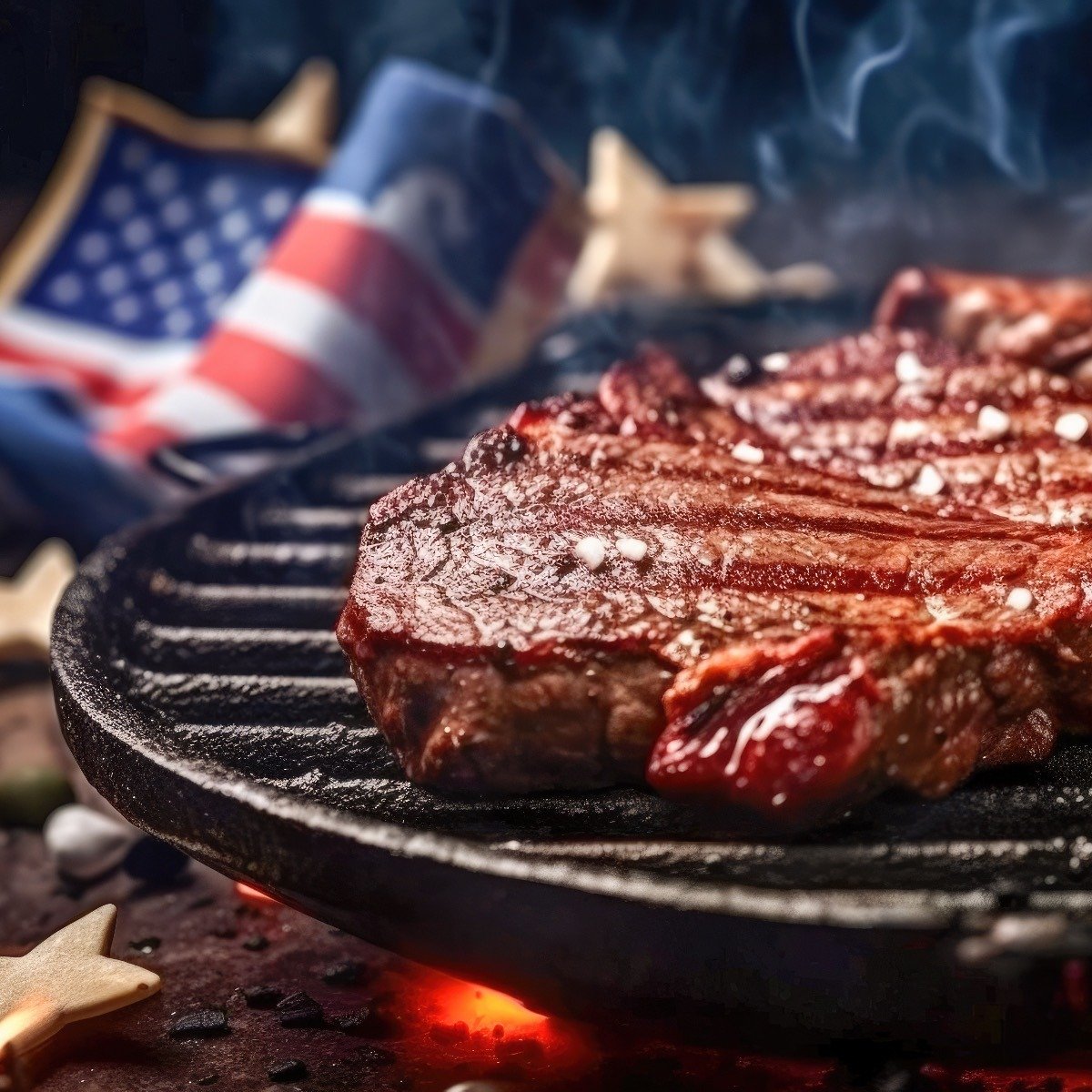
Diverse Landscape
Ultimately, the culinary history of the 4th of July is a celebration of the diverse culinary landscape of the United States. It pays homage to the traditional dishes and flavors passed down through generations while embracing new ideas and culinary innovations.
Whether it’s a classic barbecue, a refreshing picnic, or a patriotic-themed dessert, the food that graces the tables on Independence Day embodies the spirit of freedom, unity, and the pursuit of happiness.
So, as you gather with your loved ones this 4th of July, take a moment to appreciate the culinary heritage that surrounds you. Indulge in the flavors and aromas that have come to symbolize this momentous occasion.
As you savor each bite, remember the history, culture, and diverse influences shaping American cuisine. Let the culinary traditions of the 4th of July be a reminder of the shared values and traditions that bind the nation together as you celebrate with good food, good company, and a grateful heart.
Happy 4th of July

